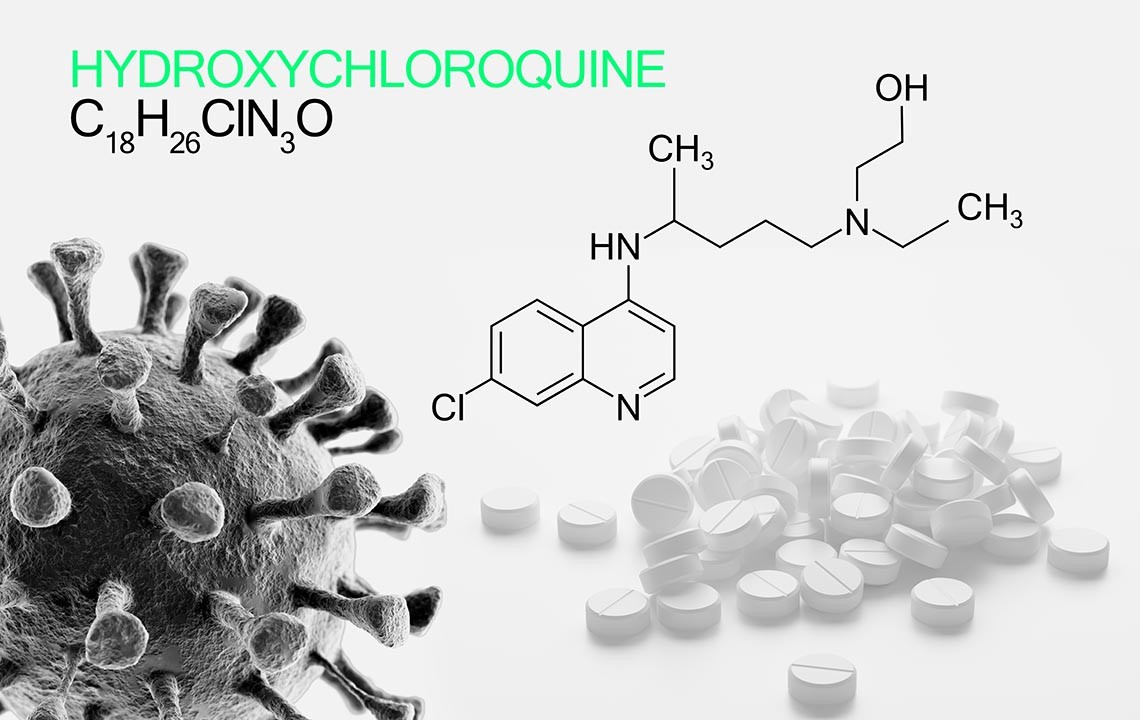Source: Springer
Coronavirus disease 2019 (COVID-19) is a pandemic with no specific drugs and high fatality. The most urgent need is to find effective treatments. We sought to determine whether hydroxychloroquine (HCQ) application may reduce the death risk of critically ill COVID-19 patients.
In this retrospective study, we included 550 critically ill COVID-19 patients who need mechanical ventilation in Tongji Hospital, Wuhan, from February 1, 2020 to April 4, 2020. All 550 patients received comparable basic treatments including antiviral drugs and antibiotics, and 48 of them were treated with oral HCQ treatment (200 mg twice a day for 7–10 days) in addition to the basic treatments. Primary endpoint is fatality of patients, and inflammatory cytokine levels were compared between HCQ and non-hydroxychloroquine (NHCQ) treatments.
We found that fatalities are 18.8% (9/48) in HCQ group, which is significantly lower than 47.4% (238/502) in the NHCQ group (P<0.001). The time of hospital stay before patient death is 15 (10–21) days and 8 (4–14) days for the HCQ and NHCQ groups, respectively (P<0.05). The levels of inflammatory cytokine IL-6 were significantly reduced from 22.2 (8.3-118.9) pg mL–1 at the beginning of the treatment to 5.2 (3.0–23.4) pg mL–1 (P<0.05) at the end of the treatment in the HCQ group but there is no change in the NHCQ group.
This data demonstrates that addition of HCQ on top of the basic treatments is highly effective in reducing the fatality of critically ill patients of COVID-19 through attenuation of inflammatory cytokine storm.
Yu, B., Li, C., Chen, P. et al. Low dose of hydroxychloroquine reduces fatality of critically ill patients with COVID-19. Sci. China Life Sci. (2020).
Therefore, HCQ should be prescribed as a part of treatment for critically ill COVID-19 patients, with possible outcome of saving lives.
Read the original article here: https://link.springer.com/article
Read the full report here: https://link.springer.com/content/pdf+
Related: China: Wuhan clinical trial, use of HCQ significantly shortens TTCR and promotes absorption of pneumonia


